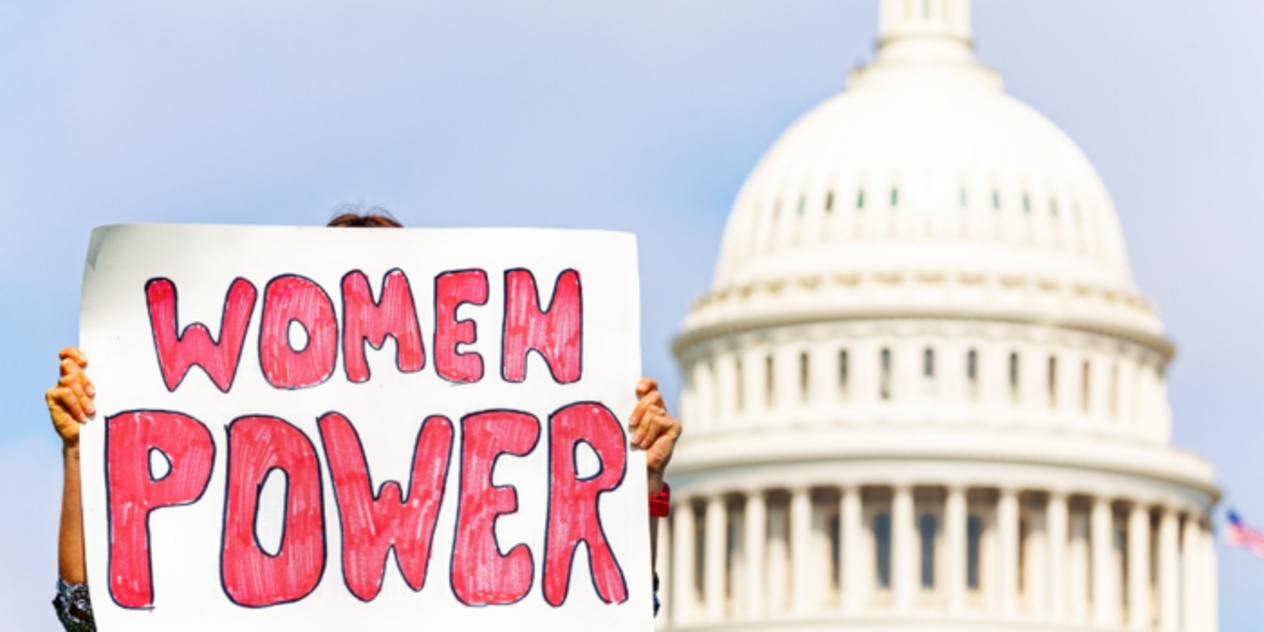
Senator Kamala Harris Introduces Uterine Fibroids Research and Education Legislation
Did you know that uterine fibroids affect millions of women in the United States? Despite the prevalence of these non-cancerous growths, a widespread lack of awareness exists. Across the country, many are needlessly suffering from painful, uncomfortable, and inconvenient fibroid symptoms like heavy periods and severe menstrual cramps. Of additional concern, black women are disproportionately affected.
To fund important research and education on uterine fibroids, Senator Kamala Harris –– Vice Presidential candidate and running mate of Joe Biden –– recently introduced the Uterine Fibroid Research and Education Act.
“Millions of women across the country are affected by uterine fibroids, which can present serious health complications,” said Senator Harris. “Complications from uterine fibroids can lead to maternal mortality and morbidity, an ongoing crisis especially for black women.”
Uterine Fibroid Research and Education Legislation Act
Senator Kamala Harris, the first Black woman to run for Vice President of the United States, is in a unique position to effectively address this common women’s health issue. Towards this goal, she introduced the Uterine Fibroid Research and Education Act in late July.
Uterine fibroids are a common type of benign tumor that grows in or on the uterus. Fibroids can impact fertility, harm surrounding organs like the bladder and bowel, and cause a range of undesirable symptoms that may affect normal activities and quality of life.
The presence and severity of fibroid symptoms varies based on location, size, and number involved. Uterine fibroids can be as small as a pea or as large as a melon. They can grow individually or in multiples.
Common uterine fibroid symptoms include:
- Heavy and prolonged menstruation between or during your periods
- Anemia, which can lead to fatigue
- Pain during intercourse
- Frequent urination
- Constipation and/or bloating
- Pain in your pelvis or lower back
- Increased menstrual cramping
- Stomach swelling
Although many women don’t even realize they have fibroids, some experience debilitating symptoms that impact their careers, personal relationships, social lives, and self-esteem. When this occurs, treatment is usually recommended.
What Is Included in the Uterine Fibroid Research and Education Act?
The Uterine Fibroid Research and Education Act provides funding for important research and educational programs. Specifically, the legislation aims to:
- Expand research by providing $30 million of funding each year to the National Institutes of Health (NIH)
- Improve the Chronic Conditions Warehouse research database to include services provided to women with fibroid symptoms
- Develop a public education program through the Centers for Disease Control and Prevention (CDC) to inform women about uterine fibroids, their risks for developing them, and available treatment options
- Convey essential information to healthcare providers through the Health Resources and Services Administration (HRSA) and related medical societies
Uterine Fibroids in Black Women
Although uterine fibroids can develop in women of all racial and socioeconomic backgrounds, black women are disproportionately affected. While an estimated 70-80% of women develop fibroids by age 50, this percentage rises to 80-90% in black women. Their relative risk is three times greater than that of other racial groups.
Black women are more likely to:
- Develop uterine fibroids
- Be affected at an earlier age
- Experience a delayed diagnosis
- Develop a greater number of fibroids
- Have fibroids with higher growth rates
- Require blood transfusions because of heavy bleeding
- Be hospitalized due to fibroids
- Treat fibroids with surgical intervention
- Have complications from fibroid surgery
When it comes to fibroid symptoms, Black women:
- Can demonstrate more symptoms
- More often suffer from severe or very severe symptoms
- Frequently report menstrual pain and cramps (40%)
- Possess 3x the risk of developing anemia
- Struggle with infertility (25%) at a rate twice that of white women
Due to lack of education and awareness about fibroid treatment, black women are:
- 2.5x more likely to have a hysterectomy (complete surgical removal of the uterus)
- 7x more likely to have a myomectomy (surgery to remove fibroids)
- 2x as likely to experience post-myomectomy complications, like excessive blood loss, scar tissue, or issues with fertility
- Less likely to be prescribed opioids for pain management
Black women with uterine fibroids also:
- More often report fibroid symptoms that interfere with physical activity
- Experience severe symptoms that impact personal relationships and sex lives
- Have more difficulty retaining fertility
Why Is the Uterine Fibroid Research and Education Act Important?
Although many women are suffering from uterine fibroid symptoms like heavy periods, severe menstrual cramps, frequent urination, and low energy levels, some don’t realize that uterine fibroids may be to blame. Of those who have heard of fibroids, many remain unaware of minimally-invasive, non-surgical treatment options.
There is little doubt that fibroids can take a heavy toll –– both physical and emotional –– on women. This is particularly concerning for black women, due to higher incidence rates. Because the Uterine Fibroid Research and Education Act provides funding for research and education, it can help all women obtain a timely diagnosis and learn about their full range of options.
Contact USA Fibroid Centers Today
If you believe you are experiencing uterine fibroids symptoms, we encourage you to contact your doctor or a fibroid specialist as soon as possible. Many women avoid treatment altogether because they believe that a hysterectomy is the only treatment –– but this isn’t true. A variety of fibroid treatments, including surgical and non-surgical methods, are widely available.
If you have fibroids, there’s no need to suffer any longer. At USA Fibroid Centers, we offer an effective, non-surgical treatment called Uterine Fibroid Embolization (UFE). UFE preserves the uterus and ovaries, does not involve a hospital stay, and can quickly reduce painful, uncomfortable, and inconvenient symptoms. To discover whether you are a candidate, schedule an initial consultation today.



